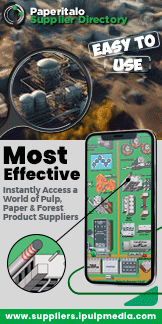Reading Jim Thompson's column on "the package deal" a month or two ago got me thinking. I've had the privilege of working for some amazing companies offering outstanding products and services to paper manufacturers and consumer products brands. They were the best in the business, for the most part. One of the most difficult challenges for me in those massive companies on the commercial side (i.e. selling) was how broad the portfolios of products and services are that I need to represent with any given customer. Sure, if one were to spend an entire career in a category, you could become very knowledgeable on a wide range of technicalities through tenure and experience. However, SMEs (subject matter experts) within large corporations are still important for differentiating your product or service among the competitive field. Leveraging the SME (or team of SMEs) is a critical tactic to build confidence with your prospect and land new business. Getting your SMEs in front of customers to delve into the nitty gritty of solutions was, and continues to be, a major part of my job history. This usually takes a long time to "set the table" for such a collaboration - in most cases.
Corporate SMEs are not "salespeople" in the sense of navigating internal and external networks, traveling to various locations collecting information, or even leveraging 'Porter's 5 Forces of Strategy'. It took me a while to develop the skill and humility to admit to a customer, "I don't know the answer to that question, but I do know who does." How could anyone know all facets of any of the categories (e.g. paper machine controls, enterprise IT systems, power distribution infrastructure, chemical additives, labor pools and org structure, operational floor layouts, and various pieces of capital equipment) to deliver desired outcomes? SMEs are critical to solving the problem statements I am able to uncover with my customers no matter the category I happened to be employed. We (the sales force) don't parade those SMEs out everywhere though because they have day jobs in product management, operations, engineering, R&D, etc. We get a pipeline opportunity for new business to the point where the SME could help us define a solution/price and commercialize a deal - whatever that entails.
Does any of this sound easy? It can be, until something obvious happens...a gap in the overall solution or a competitive threat in one area of the overall project that is better than your company at solving. By "better" I generally mean more experience/installations, more renowned "experts", or patented IP (intellectual property) geared toward solving problems. Some suppliers are innovators and focus on a smaller scope of solutions. This expertise is generally reflected in their pricing structure - offering their product or service niche at a premium due to the legal monopoly (e.g. patent), high demand due to product/service superiority, and prove-ably better outcomes or results. This would be opposed to a combined lower price to deliver everything in the project scope - even if it is obviously sub-optimal. The single-provider strategy could even be achieved through sub-contracting too to piece together the entire scope. Yet, there's one purchase order and one performance guarantee.
So what is a client to do? The economist Thomas Sowell once said that there are no right answers in just about anything, just trade-offs. If we are lucky, the innovative aspect of a critical component to a solution can carry the whole outcome, so utilizing a best-of-breed strategy is best. In reality, this strategy usually does not look optimal if risk is properly accounted for in the project. Broad portfolio, all-in-one suppliers have even developed the policy/tactic of wrapping overall project guarantees around total control and delivery of everything involved. This is how risk is minimized from the seller's perspective.
I wish I knew the answer to this dilemma and could offer outstanding advice. As I stated earlier, I'm comfortable with the position that "I don't know." What I do know is that multi-vendor collaboration is possible - I have seen it done, and done well. However, it is valuable to have "one throat to choke" when challenges crop up in project delivery and ongoing operations. This can be described with a transaction cost term called "bounded rationality" which refers to the impossibility of foreseeing all possible future events and planning on how to contend with issues in a contractual agreement. To me, a dilemma like this is a commercial issue and can slip into pure politics of deferring blame when issues undoubtedly arise. I guess it could also boil down to situations (the buyer has great project management teams to coordinate multiple vendors in a project or has hired an EPC general contractor) and constraints (tight timelines, limited budgets) as to what the best path forward could be. Would it be so awful to have a room full of experts, even if representing many supplier companies, building something better than the individual parts and diagnosing challenges and unforeseen obstacles? Another way to look at it is having a large SWAT team of SMEs with different logos on their shirts on your project team. Or will the finger pointing from interdependency of each unit operation drive a customer insane and generate too much noise in any given situation?
I guess Thomas Sowell was right.
Steve Sena (stevesena@me.com) is a Cincinnati native. He obtained degrees in Paper Science & Engineering from Miami University in Oxford, OH and an MBA concentrating in Economics from Xavier University. He's worked for a broad array of leading producers, suppliers, and converters of pulp and paper grades.






















